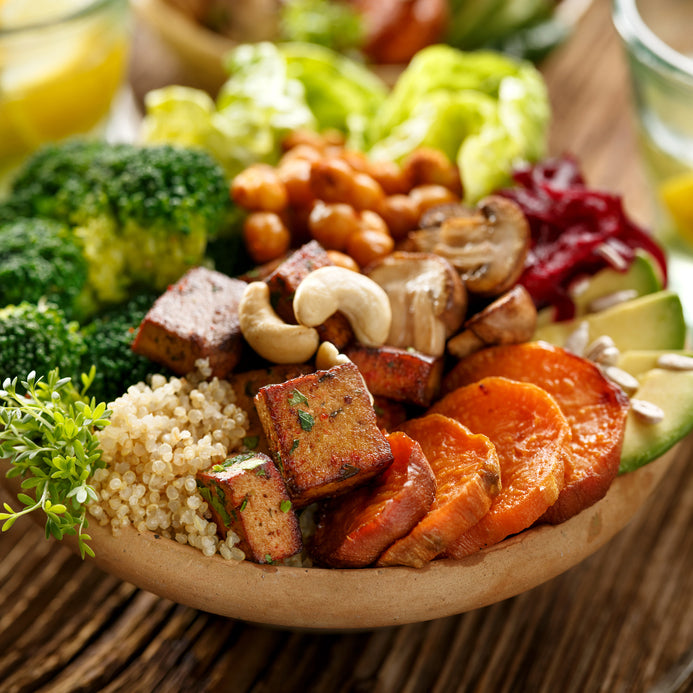Adopting a vegan diet can be great for your health and wellbeing and you can still get the majority of essential nutrition you need to fuel your workouts.
But there are some nutrients we get from animal products that our bodies can’t absorb from plants.
This means
some people just won’t react well to a plant-based diet. They get ill, run down and overly stressed, finding their bodies just don’t function as well and they can’t handle their training.
To give yourself the best chance of avoiding this and still reaping all of the health benefits of meat-free nutrition, you should consider supplementing some of the following vitamins and minerals.
Vitamin B12Vegetarians and vegans have a higher risk of being deficient in vitamin B12 even though you can source it from some foods like mushrooms and nutritional yeast. It’s critical for protein metabolism and the formation of red blood cells, so a vitamin B12 supplement is probably the most important supplement to consider for vegan athletes.
IronIron is another critical nutrient for athletes. We typically need more iron than most adults, and developing an iron deficiency - known as anaemia - can negatively impact performance. That’s because iron is used to make red blood cells. The form of iron that is more easily absorbed is called heme iron, and this can only be found in meat products, so vegans should take a supplement.
Vitamin D You can only get very small amounts of vitamin D, and what you can get tends to come from meat, fish and eggs. It helps your body absorb calcium and phosphorus from your gut and contributes to a healthy immune system. We get the vitamin D we need from the sun, but in the UK you can’t always rely on that so everyone is advised to take a supplement during the winter. This is extra important if you aren’t eating meat.
Omega-3Omega-3 fatty acids, particularly long-chain omega-3 fatty acids help support brain function and eye health. Not getting enough has been linked with attention problems, depression and inflammation. You can get omega-3 fatty acids from sources like chia seeds, walnuts and soybeans, but it’s still hard to get all you need without eating oily fish.
ZincZinc is crucial for the immune system and the repair of red blood cells, and very few plant foods contain adequate amounts of zinc. This means vegans typically have lower zinc levels in their blood than omnivores. In order to keep away from illnesses so you can maintain consistent training, it’s a good idea to consider supplementing with zinc.


Share:
5 High-Protein Grain & Legume Recipes To Fuel Workouts
How Much Protein Do You Need When Bulking